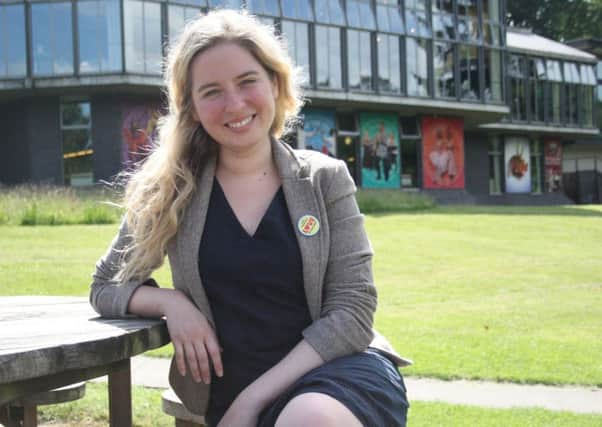How Elizabeth Newman plans to stop Pitlochry Festival Theatre being seen as “a Perthshire outpost of English theatre”


“I think my first priority,” says Newman, “was for us to announce ourselves as a place that wants to engage with everyone. We want it to be clear that everyone is welcome, whether you’ve ever been here before or not; and Summer Holiday is a great show for signalling that, to people who love pop music and cinema, as well as to theatre fans. We’ve already had a couple of previews, and there were quite a few local people in the audience who had been attracted to the theatre for the first time. And we’re definitely setting the beginning of the story right here in Pitlochry, Elizabeth Yuill bus and all; oh yes, that was essential.”
While Newman and her newly-appointed associate Ben Occhipinti work on this opening revival of a show they also staged to great acclaim at the Octagon in Bolton, the theatre where Newman was artistic director until last year, Newman also has her eye on the evolving shape of a season in which she will also direct a Pitlochry-set production of Arthur Miller’s great drama of religious hysteria and scapegoating, The Crucible (set to open later this month), and, in August, a stage adaptation of Elizabeth Gaskell’s fascinating novel North And South, about a 19th century Britain painfully divided, in the minds of many, between genteel south and harsh, industrial north. And in July, Richard Baron will direct a long overdue revival of Nicola McCartney’s great 1998 Traverse play Heritage, about a young Northern Irish couple trying to build a new future in early 20th century Canada, who find that old divisions and conflicts are not easily left behind, even on a new continent.
Advertisement
Hide Ad“As well as staging work that’s welcoming and enjoyable for everyone,” says Newman, “it’s also very important to me to stage compelling, important, arresting drama that asks big questions about the political situation in which we find ourselves at the moment, about who we are and who we want to be; but that also leave us a flicker of hope, a sense that if we share these stories, we can find ways through.”
As well as developing her first season, Newman is working hard on strengthening the links between Pitlochry and the wider Scottish theatre community, which has often tended to regard Pitlochry as a kind of Perthshire outpost of English theatre, rather than part of the Scottish scene; and it’s a perception that has been strengthened by the fact that Pitlochry receives very little funding from Creative Scotland, generating most of its income from its box office, bar and vast restaurant space overlooking the river. In fact, though, the perception has never been entirely fair; and now, Newman has begun to change the theatre’s approach and casting system, meeting scores of Scottish actors since her arrival late last year, making sure that her company is at least one-third Scottish – River City actress Deirdre Davis, an outstanding star of Pitlochry’s 2018 season, will play Danforth in The Crucible – and leading Pitlochry into its first full creative co-production with another Scottish building-based theatre, in the shape of the Lyceum-Pitlochry production of Neil Simon’s Barefoot In The Park planned for next spring.
“When I came to Pitlochry, it was because I wanted to run a Scottish theatre,” says Newman. “I’m not interested in running an English theatre in Scotland. I think every theatre has to be rooted in its own place, in the landscape, in the community, and in the stories that come from that place or mean something to it – that’s another reason for doing The Crucible and Heritage, which are both set in communities not unlike what Pitlochry would have been at the time. I’m also delighted that this year’s autumn production, Brian Friel’s Faith Healer starring George Costigan, will be going out on tour in the Highlands and Islands; it is the most magnificent play, and because of its monologue form, it can work both in a big theatre and in very small local halls.
“When I’m sitting in my office here,” adds Newman, “I always have the playbill for the first 1951 season beside me, and I always try to stay true to that original John Stewart essence of what Pitlochry was all about. And at the heart of it, I think it was about the idea that people would turn up and sit in a big tent and hear a great story, really well told. Those early programmes are amazing, full of a great mix of Scottish and international work. So for me, it’s all about the world to Pitlochry, and Pitlochry to the world; and I hope this season expresses that spirit, and attracts the widest possible audience to this amazingly beautiful place.” n
The Pitlochry Festival Theatre Summer Season runs until 5 October, followed by autumn and Christmas productions of Faith Healer and A Christmas Carol. For details, see www.pitlochryfestivaltheatre.com